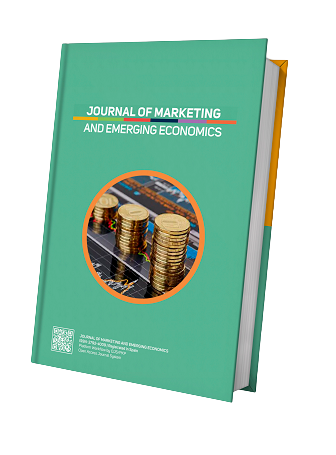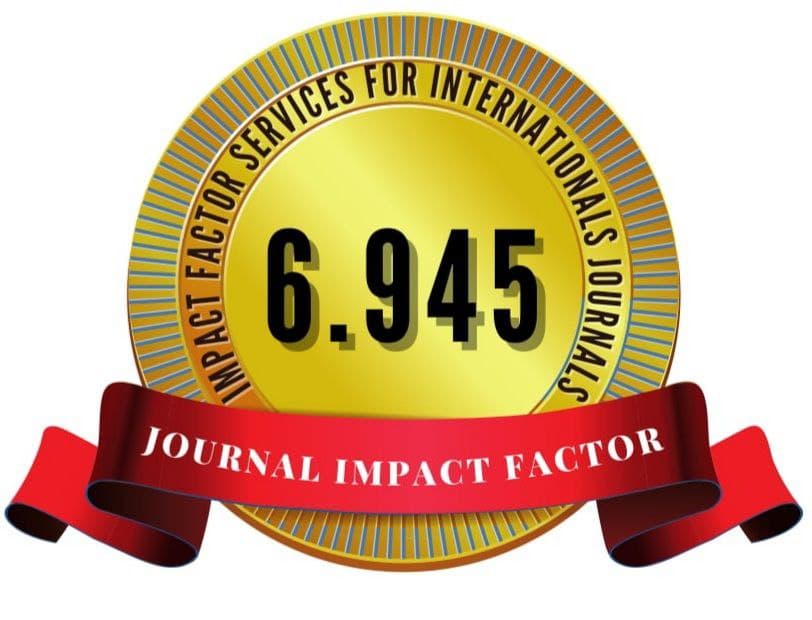Behavioral Accounting Aspects in Purchasing Decisions Gender Perspective as Implementation of SDGs No. 5
Keywords:
Mobile Self Efficacy, Self Esteem, Spending Habits, Buying Decision, GenderAbstract
This research aims to determine the influence of mobile self-efficacy, self-esteem and spending habits on purchasing decisions moderated by gender. The sampling technique in this research was probability cluster sampling and the total subjects were 162 respondents. The data collection technique uses a questionnaire with a Likert scale which is arranged based on aspects of the indicators for each variable. The analysis technique used is multiple linear regression with moderated regression analysis. The data in this research was processed with the help of the SPSS 16 program. The research results show that mobile self-efficacy, self-esteem, and spending habits have a significant influence on purchasing decisions. Gender does not moderate the influence of mobile self-efficacy and spending habits on purchasing decisions, however, gender moderates the influence of self-esteem on purchasing decisions. This research resulted in the fulfillment of gender equality in the use of technology.
References
Sudrajat, A., & Ant, S. (2016). Fenomenaperilakubelanja online sebagaialternatifpilihankonsumsi di kalanganmahasiswa Universitas Negeri Surabaya. Paradigma, 4(03).
Hudayati, A. (2002). PerkembanganPenelitianAkuntansiKeperilakuan: Berbagaiteori dan pendekatan yang melandasi. JurnalAkuntansi Dan Auditing Indonesia, 6(2).
Tianika, F. O., &Njotoprajitno, R. S. (2021). PerbandinganPengaruhIndeksPrestasiKumulatif (Ipk), LiterasiKeuangan, Dan PenjurusanTerhadap Spending Habits Mahasiswa. Analisis, 11(2), 163–176. [9]
Triandis, H. C. (1971). Attitude and attitude change. (No Title).
Febriani, R. P., & Hermawan, S. (2023). The Effect Of Mobile Self Efficacy And Spending Habits On Purchase Decisions Using Shopee With Financial Literacy As [ Pengaruh Mobile Self Efficacy Dan Spending Habits Terhadap Keputusan PembelianMenggunakan Shopee PaylaterDenganLiterasiKeuangan Seba. 1–14. https://doi.org/10.21070/ups.617.
Mahat, J., Ayub, A. F. M., & Luan, S. (2012). An assessment of students’ mobile self-efficacy, readiness and personal innovativeness towards mobile learning in higher education in Malaysia. Procedia-Social and Behavioral Sciences, 64, 284–290.
Andjarwati, A. L., &Kristiyanto, D. (2012). Pengaruhorientasi fashion, money attitude dan self-esteem terhadapperilakupembeliankompulsif pada remaja (Studi Pada KonsumenProdukTeleponSelular di Surabaya). BISMA (Bisnis Dan Manajemen), 4(2), 128–144.
Masrohatin, S., &Khodijah, S. (2019). Spending Habits: DimensiSosialEkonomiPemanfaatanSumberdayaPerikanan Masyarakat Pesisir Pantai Selatan MuncarBanyuwangi: Spending Habits: Socio-Economic Dimensions Of Fisheries Resources Utilization Of Coastal Communities South MuncarBanyuwangi. Fenomena, 18(2), 238–250.
Anwar, I., & Satrio, B. (2015). Pengaruhharga dan kualitasprodukterhadapkeputusanpembelian. JurnalIlmu Dan RisetManajemen (JIRM), 4(12).
Stephanie, A., Hidayatullah, S., &Ardianto, Y. T. (2019). An Emperical Study of Website Quality on Hotel Booking Online. International Journal of Business Marketing and Management (IJBMM), 4(2), 10–14.
Rakhmadian, M., Hidayatullah, S., &Respati, H. (2017). Analisiskualitassistem dan kualitasinformasiterhadapkepuasanpemakaisisteminformasiakademikdosen.
Septiaji, B. C., &Hasymi, M. (2021). Gender Self Efficacy TekananKetaatanKompleksitasTugas Dan. Balance: JurnalAkuntansi Dan Bisnis, 6(1), 55–68.
Ekapaksi, N. (2016). PengaruhKonformitas dan Harga DiriTerhadapPerilakuPembelianKompulsifAitem Fashion. Psikoborneo: JurnalIlmiahPsikologi, 4(3).
iPrice. (2022). Peta E-Commerce Indonesia. https://iprice.co.id/insights/mapofecommerce// [
Maulana, A. (2021). Pengaruhpersepsikualitaspelayanan e-Commerce terhadapkepuasanpelanggan, kepercayaan Dan loyalitas pada produk fashion. Center for Open Science.
Orinaldi, M. (2020). Peran E-commerce dalamMeningkatkanResiliensiBisnisdieraPandemi. ILTIZAM Journal of Shariah Economics Research, 4(2), 36–53.
HANIF ZAID. (2021). Polarisasi E-commerce Berdasarkan Gender di Indonesia. KUMPARAN. https://kumparan.com/tokyorio/polarisasi-e-commerce-berdasarkan-gender-di-indonesia-1vTwsqRjILd/full.
Fauziah, S. A., &Ashfiasari, S. (2021). Pengaruh Social Influence dan Self-efficacy Terhadap Intention to Use Mobile Payment System Pada Pengguna E-wallet. JurnalEkonomi, Manajemen, Bisnis, Dan Sosial (Embiss), 1(4), 307–317.
Rini, Q., &Sidhiq, A. (2015). Hubungan Tingkat Kesadaran Akan Keamanan Internet Dan EfikasiDiriTerhadap Internet. JurnalPsikologi Universitas Gunadarma, 8(2), 155–162.
Akhadiyah, R. F., &Suharyono, S. (2017). PengaruhMotivasiPembelian Dan Harga DiriTerhadapPerilakuPembelianKompulsifProduk Fashion (Surveipadakonsumenfashion Malang Town Square Di Kota Malang). Brawijaya University.
Astari, L. W., &Widagda, I. (2014). Pengaruhperbedaanjeniskelamin dan kontroldiriterhadapkeputusanpembelianimpulsifproduk parfum. E-JurnalManajemen Universitas Udayana, 3(3), 546–560.
Hadjali, H. R., Salimi, M., Nazari, M., &Ardestani, M. S. (2012). Exploring main factors affecting on impulse buying behaviors. Journal of American Science, 8(1), 245–251.
Panjaitan, V. S. S., &Sukoharsono, E. G. (2019). Analisis Kinerja Sustainabilitas Yang BerkontribusiPadasustainable Development Goals Atau SDGs (StudiKasus pada LaporanKeberlanjutan PT Pupuk Kalimantan Timur). JurnalIlmiahMahasiswa FEB. https://garuda.kemdikbud.go.id/documents/detail/2346137
Septiani, B. A., Chandraderia, D., Arini, T. A., &Pratomo, Y. (2020). Peran Usaha MajuSukses Bersama (Msb) DalamMendukungPertumbuhanEkonomiInklusif. JurnalIlmiahEkonomiBisnis, 25(2), 169–185. https://doi.org/10.35760/eb.2020.v25i2.2500
Assaat, I. I. (2007). Persepsiatas program akselerasi dan stresakademik. JurnalProvitae, 3(1), 29–54.
Sugiyono, D. (2013). Metodepenelitianpendidikanpendekatankuantitatif, kualitatif dan R&D.
Hermawan, S. (2016). Amirullah. MetodePenelitianBisnis Bandung,” CV Alfa Beta.
Keith, M. J., Babb, J. S., Lowry, P. B., Furner, C. P., &Abdullat, A. (2015). The role of mobile‐computing self‐efficacy in consumer information disclosure. Information Systems Journal, 25(6), 637–667.
Tafarodi, R. W., & Swann Jr, W. B. (1995). Self-linking and self-competence as dimensions of global self-esteem: initial validation of a measure. Journal of Personality Assessment, 65(2), 322–342.
Cummins, M. M., Haskell, J. H., & Jenkins, S. J. (2005). Financial attitudes and spending habits of university freshmen. Allied Academies International Conference. Academy for Economics and Economic Education. Proceedings, 8(1), 3.
Syahtidar, N., Suherman, S., & Siregar, M. E. S. (2022). Analyzing Factors Affecting the Purchase Decision of Shopee Users in Bekasi. Interdisciplinary Social Studies, 1(7), 860–872.
Shukla, A., & Awasthi, R. (n.d.). Gender role in purchase decision.
PDDikti - Pangkalan Data Pendidikan Tinggi. (n.d.). Retrieved February 28, 2024, from https://pddikti.kemdikbud.go.id/
Sugiyono, P. (2019). MetodePenelitianKuantitatifKualitatif dan R&D (D. Sutopo. S. Pd, MT, Ir. Bandung: Alfabeta.
Ghozali, I. (2016b). Aplikasianalisismultivarietedengan program IBM SPSS 23.
Ghozali, I. (2016a). AplikasiAnalisis Multivariate dengan Program IBM SPSS 21: Update PLS Regresi. Semarang. Badan Penerbit Universitas Diponegoro. Doi, 10, 1579941
Sujarweni, W. (2014). Metodologipenelitian: Lengkap, praktis, dan mudahdipahami
Ayunita, D. (2018). Modul Uji Validitas dan Reliabilitas. StatistikaTerapan, October. https://www.researchgate.net/publication/328600462_Modul_Uji_Validitas_dan_Reliabilitas
Queisser, M. (2016). Gender equality and the sustainable development goals.
Mirantika, N. (2022). AnalisisPenerimaanTeknologi M-Commerce MenggunakanMetode Technology Acceptance Model (TAM) Pada Penjualan Retail di KabupatenKuningan. NuansaInformatika, 16(1), 161–171
Suryawirawan, O. A. (2020). E-commerce shopping experience towards college student’s intention to adopt e-commerce in the future: TAM and self-efficacy approach. SEIKO: Journal of Management & Business, 3(3), 129–142.
Lee, C.-C., & Hsieh, M.-C. (2009). The influence of mobile self-efficacy on attitude towards mobile advertising. 2009 International Conference on New Trends in Information and Service Science, 1231–1236.
Srisayekti, W., &Setiady, D. A. (2015). Harga-diri (self-esteem) terancam dan perilakumenghindar. JurnalPsikologi, 42(2), 141–156.
Santrock, J. W., & Santrock, J. W. (2007). Psikologi Pendidikan edisikedua. KencanaPrenada Media Group.
Putri, D. A. K. (2019). Pengaruh Money Attitude Dan Self-Esteem TerhadapPerilakuPembelianKompulsif. Universitas Komputer Indonesia.
Firhanida, S., & Hadiyati, F. N. R. (2018). Hubungan Antara Keputusan PembelianProduk E-Commerce Dan KohesivitasKelompokDengan Self-Esteem Pada MahasiswaTahunPertamaFakultasPsikologi Universitas Diponegoro. Undip.
Alfiah, I., &Budiani, M. S. (2014). Harga Diri dan KonformitasdenganPengambilan Keputusan PembelianProduk Smartphone pada Siswa. JurnalPsikologiTeori Dan Terapan, 5(1), 15–22.
Sunastiko, K. P., Frieda, N. R. H., & Putra, A. (2013). Hubungan Antara Citra Diri (Self Image) denganPerilakuKonsumtifDalamPembelianProdukKosmetik Pada MahasiswiFakultas Hukum Universitas Diponegoro Semarang. JurnalEmpati, 2(3), 62–69.
Huddleston, P. (2011). Consumer behavior: women and shopping. Business Expert Press
Anggraeni, T. C., Widjayanti, W., & Puspita, A. B. I. (2023). PENGARUH PROMOSI DAN CITRA MEREK TERHADAP KEPUTUSAN PEMBELIAN PELANGGAN SHOPEE. JurnalEkonomi Dan Manajemen, 2(1), 40–51
Shafinazh, N. (2020). Pengaruh Promo Shopee “Tanggal-Tanggal Istimewa” TerhadapMinatBeliMahasiswaFakultasIlmuSosial dan IlmuPolitik Universitas Sumatera Utara. Universitas Sumatera Utara.
Sudirjo, F., Lotte, L. N. A., Sutaguna, I. N. T., Risdwiyanto, A., & Yusuf, M. (2023). The Influence Of Generation Z Consumer Behavior On Purchase Motivation In E-Commerce Shoppe. Profit: JurnalManajemen, Bisnis Dan Akuntansi, 2(2), 110–126.
Latif, F. R. D., & Ishak, A. (2022). Faktor-Faktor Yang MempengaruhiBelanja Online Berbasis Smartphone: EbuahStudiEmpiris Dari Pembelanja Wanita Muda Di Indonesia. SelektaManajemen: JurnalMahasiswaBisnis&Manajemen, 1(3), 249–265.
Acheampong, P., Zhiwen, L., Hiran, K. K., Serwaa, O. E., Boateng, F., & Bediako, I. A. (2018). Examining the intervening role of age and gender on mobile payment acceptance in Ghana: UTAUT model. Canadian Journal of Applied Science and Technology, 6(1), 141–151.
Ramadania, S., &Braridwan, Z. (2019). The influence of perceived usefulness, ease of use, attitude, self-efficacy, and subjective norms toward intention to use online shopping. International Business and Accounting Research Journal, 3(1), 1–14.
Virly, N., &Balgies, S. (2023). Self Esteem Dengan Online Compulsive Buying Produk Fashion Pada Konsumen Perempuan. Psycho Aksara: JurnalPsikologi, 1(1), 19–31.
Ekasari, S. R. (2019). Hubungan Antara Self Esteem Dengan Compulsive Buying Pada MahasiswiDewasa Awal Universitas MercuBuana Yogyakarta Oleh: ShelvyanaRhajaniEkasari 15081324 FakultasPsikologi Universitas MercuBuana Yogyakarta Yogyakarta 2019. Universitas MercuBuana Yogyakarta.
Rahmadhani, N., & Bakar, R. M. (2023). Pengaruh Self-Esteem TerhadapPerilakuPembelianImpulsif Pada Wanita PenggunaProdukKosmetik. PESHUM: Jurnal Pendidikan, Sosial Dan Humaniora, 2(4), 554–562. [
Calista, I. G. A. A., & Suparna, G. (2015). Pengaruhmotivasirasional, motivasiemosional dan hargadiriterhadapkeputusanpembelian smartphone pada mahasiswa Universitas Udayanadimoderasi oleh gender. Udayana University.
Raafi, G., & Martono, S. (2016). PengaruhPromosiTerhadapImpuls Buying Dengan Gender SebagaiVariabel Dummy. Management Analysis Journal, 5(2).
Rochaniah, Y., & Sari, R. C. (2021). PengaruhLiterasiKeuangan Digital, Penghasilan, Dan Gender Terhadap Keputusan PembelianKonsumen E-Commmerce. JurnalProfita: Kajian IlmuAkuntansi, 9(6), 1–20.
Fitriani, D. (2019). Pengaruh gender terhadapkeputusanpembelianproduk online (Studikasusterhadapmasyarakat Pontianak). Creative Communication and Innovative Technology Journal, 12(1), 99–107.
Anggraeny, R. D., &Baihaqi, I. (2021). Analysis of E-Marketplace Use in East Java’s MSMEs Using the Technology Acceptance Model Approach. KnE Social Sciences, 707–727.
Arum, D., &Khoirunnisa, Ri. N. (2021). Hubunganantarakontroldiridenganperilakukonsumtif pada mahasiswipsikologipengguna e-commerce shopee. Character: JurnalPenelitianPsikologi, 8(9), 92–102.
Hermawan, S., &Amirullah, A. (2016). Metodepenelitianbisnispendekatankuantitatif&kualitatif. Media Nusa Creative.
Jaradat, M.-I. R. M., & Faqih, K. M. S. (2014). Investigating the moderating effects of gender and self-efficacy in the context of mobile payment adoption: A developing country perspective. International Journal of Business and Management, 9(11), 147.
Lütz, F. (2023). Gender Equality and Artificial Intelligence: SDG 5 and the Role of the UN in Fighting Stereotypes, Biases, and Gender Discrimination. In Women’s Empowerment and Its Limits: Interdisciplinary and Transnational Perspectives Toward Sustainable Progress (pp. 153–180). Springer.
Muri Yusuf, A. (2017). Metodepenelitian: kuantitatif, kualitatif, dan penelitiangabungan.
Rahmawaty, A. (2017). Perempuan Dan PemanfaatanTeknologi Internet DenganPendekatanUtaut. PALASTREN JurnalStudi Gender, 9(1), 13. https://doi.org/10.21043/palastren.v9i1.1746
Sari, D., Anastasia, D., Ferdiani, A., & Gajah, R. S. (2022). Konsepakuntansikeperilakuandariaspekpsikologi dan psikologisosial. Research in Accounting Journal (RAJ), 2(2), 264–272.
Trianingsih, K., &Mahyuni, L. P. (2023). Pengaruh Gaya Hidup, LiterasiKeuangan, IntensitasPenggunaan Mobile Payment Terhadap Spending Habits. Media Bina Ilmiah, 17(9), 2299–2310.







